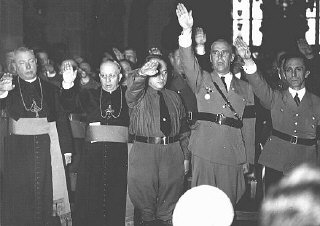Tuesday, February 21, 2012




Television, Radio Stations & TV Tax in Italy
...
A retrograde disinformation system at the service of propaganda milking money from the taxpayer to feed him with rhetoric and indoctrination.
...
A relic of Mussolini age which the friends of the "man of the providence" love so much given that it sponsors their mythological marxist-dogmatic furry tales, result of the marxist clerical "historical compromise"
...
a shame for any civilized nation
...
Thursday, February 16, 2012

Catholics are not abandoning Obama
...
But if before the contraception controversy broke out Catholic approval for Obama was 49%, last week it had fallen to just 46%. A microscopic change when looking at the war the Church waged in recent days by the Catholic Church against the Obama administration, forcing him to take a step back.
...
...
hopefully in a moment of wisdom the church may understand that as in the case of Galileo, they are scientifically outside of reality with contracception as well
...
Friday, February 03, 2012
Wednesday, February 01, 2012
Oscar Luigi Scalfaro Obituary
...
held the post during the sweeping corruption scandal of the early 1990s that reshaped the country's post-war political landscape
...
example of "moral integrity."
...
...
hopefully he may be remembered following his indications
in reforming the justice system
a change long overdue
...
Subscribe to Comments [Atom]
